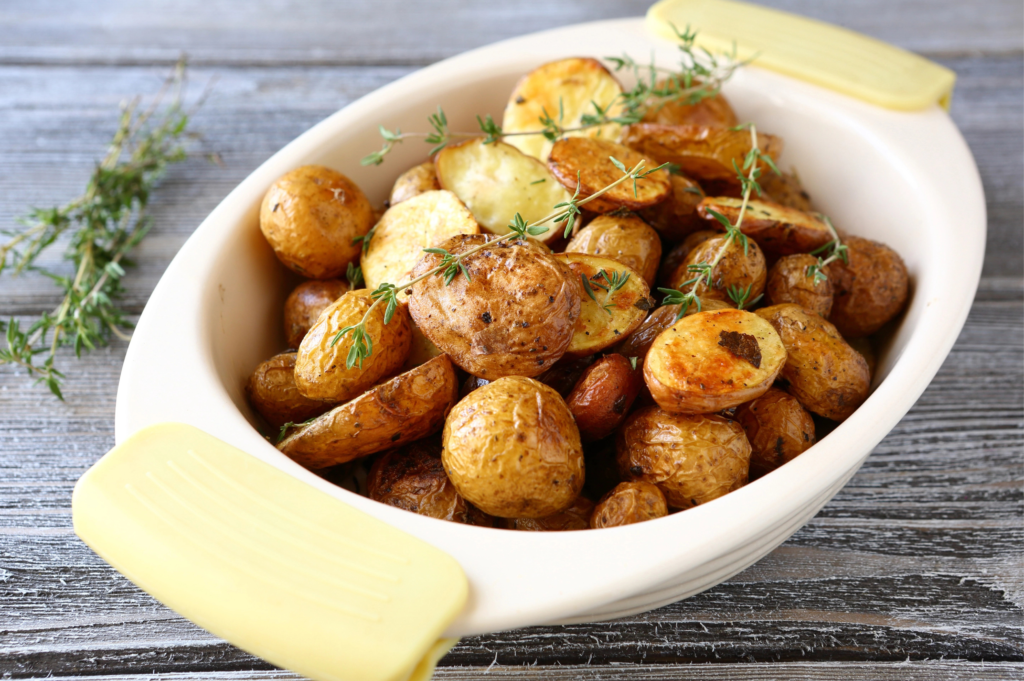
There are so many benefits to backloading carbohydrates that go beyond fitness. Some of these benefits you’re already familiar with. Some of these benefits will surprise you.
In this article, we will address.
- What is Carb Backloading
- Who Would Carb Backloading be Good for?
- How Carb Backloading Can Promote Muscle Retention on an Aggressive Cut
What is Carb Backloading?
Carb Backloading is a method of eating in which you’re consuming low or no carbohydrates throughout the day and consuming all or majority of your carbs at night.
The goal is to maintain insulin sensitivity throughout the day. The period where you are the most insulin-sensitive is in the morning and after resistance training.
Who Would Carb Backloading Be Good for?

People That Workout Later in the Day
Carb backloading is excellent for anyone that workouts in the late afternoon or early evening.
Essentially, you’re consuming no carbs before your workout, or you’re consuming up to 50 grams of carbs pre-workout.
The ideal group of people that would practice carb backloading are the ones that train between 3pm and 5pm in the afternoon or right after getting off work.
You would limit your pre-workout calories to just protein, fats, and carbohydrates from vegetables.
Taking in pre-workout carbs from fruit is not recommended, because it can cause a greater insulin response than carbs from veggies.
There are also elements of intermittent fasting involved with carb backloading. When you wake up in the morning, you are still delaying your breakfast time by 4-8 hours.
During this time, you are only consuming water and black coffee.
When you break your fast, you would have a small meal that is around 500 calories, contains a rich amount of protein, a moderate amount of fat, and a moderate amount of carbs.
People That Want to Stay More Satiated on an Aggressive Cut
Aggressive cutting is a fat loss practice where the goal is to lose between a pound-in-a-half to 2 pounds of body fat per week. This equates to a 750 – 1,000 calorie deficit per day.
For instance, let’s say you are a male with a caloric maintenance of 2,800. For you to lose bodyfat aggressively, you would need to restrict your daily intake to 1,800 – 2,050 calories per day.
What is the challenge of doing this?
You may have hunger issues. 750 – 1,000 is considered a large energy-deficit. This is where carb backloading shines.
If you prioritize protein and fats early in the day and save majority of your carbohydrate calories for the nighttime, you will stay fuller on a lower-calorie diet.
Why is this the case?
Carbohydrates do the best job at promoting leptin. If you don’t know, leptin is your satiety hormone. It signals to your brain you are full after consuming food.
If you can’t control leptin, you can’t control your appetite. If you can’t control your appetite, you will not lose fat.
If you want to learn more about the hormone leptin, check out this article How to Keep Leptin Levels High for Fat Loss.
If you need a way of determining your caloric needs, refer to this calorie calculator.
Anyone That Wants to Sleep Better at Night
Another advantage to eating more carbs at night is better sleep quality. Carbohydrates have been shown to release neurotransmitters in the brain called serotonin.
When this happens, you feel relaxed and ready to fall asleep.
One of the problems with large caloric deficits is the risk of insomnia. You may be someone that can handle a large deficit, but your body doesn’t want to fall asleep at night.
If you can allocate 80-100% of your carbs to the evening, you will have way better sleep quality on an aggressive fat loss program.
Anyone That Wants More Work Productivity
Carb backloading can increase your work productivity during the day. When you pair this method of eating with intermittent fasting, you can complete more tasks that pertain to your:
- Job
- Business
- Household activities
- General daily life activities
When your body is running primarily on fat as a fuel source, you have more energy and mental focus.
Eating too many calories during the day, especially from carbohydrates, can make you feel sluggish, tired, and lazy.
Obviously, this will negatively impact your work productivity.
Most likely, you already experienced the negative effects of consuming too many carbs too early in the day.
Maybe you can recall times when you had potluck lunches with your co-workers. People brought mac and cheese, potato wedges, rice, pie, and other desserts.
Not only were you consuming a calorically dense meal at 12 in the afternoon, but you were consuming a carb-heavy meal at 12 in the afternoon.
You couldn’t focus on work the rest of the day because you were in a food coma. The body was fighting to digest all that food.
It would have been worse for you if it was a training day, and you had to wait for that food to fully digest before you could train that evening.
Ideally, you should prioritize a 400-500 calorie small meal to break your fast with later in the day. This meal should give you a balance of protein, fats, and carbs.
That way you are satiated to the point where you can still work without feeling too hungry.
Also, you would be able to go into a resistance-training session without feeling too hungry.
Of course, you would get most of your calories post-workout or at dinnertime.
If you want a good recipe for a small breakfast meal, check out this post Insanely Good High Protein Greek Yogurt Bowl.
Carb Backloading Can Promote Muscle Retention on an Aggressive Cut

When you cut calories with the intention of losing 6-8 pounds of body fat per month, you do run the risk of muscle loss.
Now, this is not something you have to worry about if you have an excessively high bodyfat percentage.
However, if you’re a man around 15% bodyfat or a woman around 20% bodyfat, you are at risk for muscle loss in a large caloric deficit.
The best way to prevent that is to integrate carb backloading with:
- Intermittent Fasting
- Strength Training
- Sufficient Protein Intake
- Proper Micronutrient Intake
- Quality Sleep
Muscle glycogen is depleted after an intense workout. It makes physiological sense to allocate all or most of your carbs post-workout.
This assumes your workout is in the late afternoon or early evening.
By consuming plenty of carbohydrates at night, your muscle glycogen is optimally replenished, therefore, you retain more muscle on a fast cut.
You can even build a little bit of muscle on an aggressive cut.
Another thing to be mindful of is that carbohydrates stimulate insulin more than any other macronutrient.
Insulin is an anabolic hormone and building muscle is an anabolic process.
This is how significant insulin spikes at night can be a great thing, because you a promoting a muscle-building environment.
Conclusion
Look at carb backloading as another tool in your fitness box. Carb backloading is not to be taken as science for fat loss.
What is fat loss science is maintaining a net caloric deficit over a period of several weeks or months, depending on how much fat you want to lose.
This cannot be said too much.
Sure, backloading your carbs gives you fat loss advantages including:
- Increased energy for late-afternoon workouts
- Improved satiety
- Higher quality sleep
- Better work productivity
- More muscle retention
But still, calories in vs calories out is the name of the game.
If you need a deeper understanding on the importance of tracking your calories, give this article a read Why You Need to Track Calories to Lose fat.

One Response